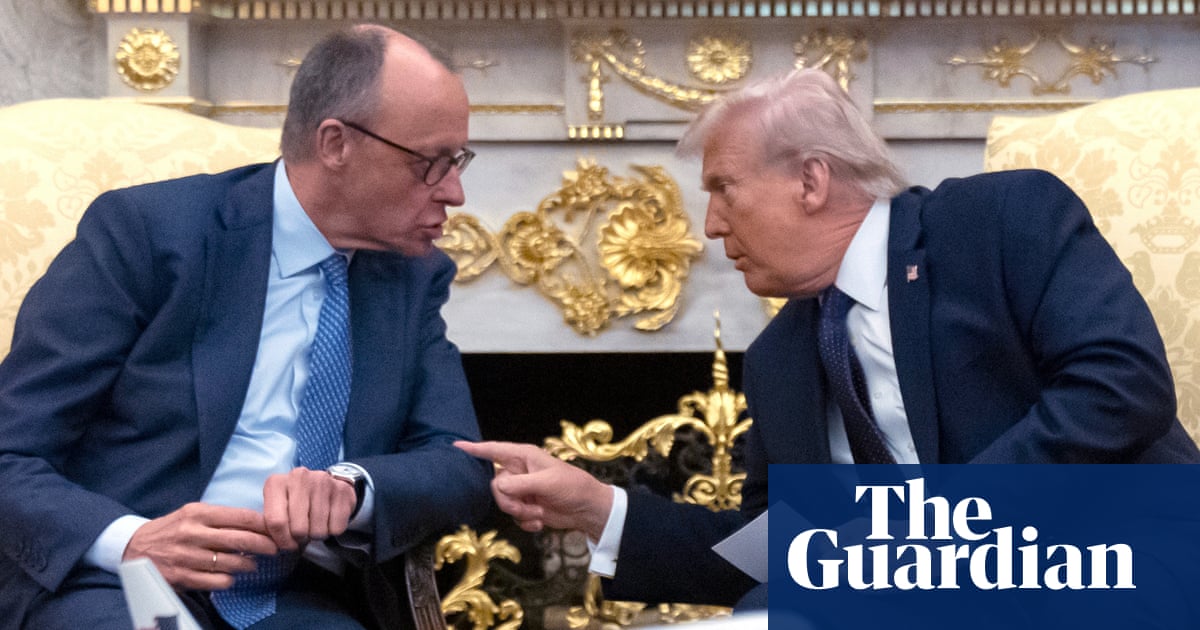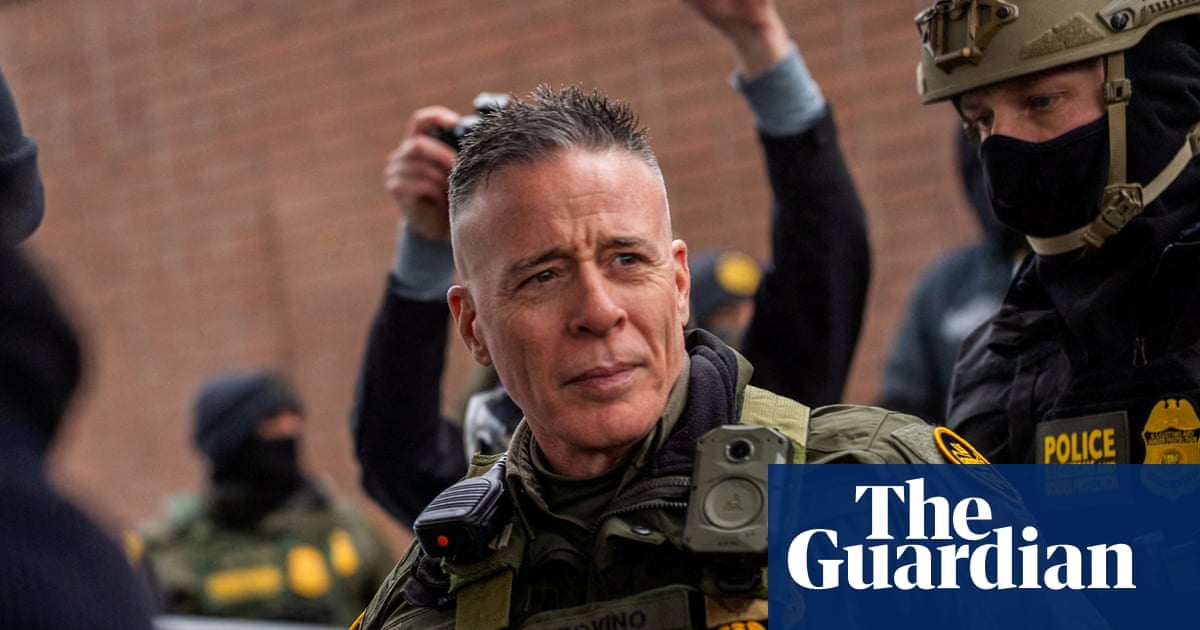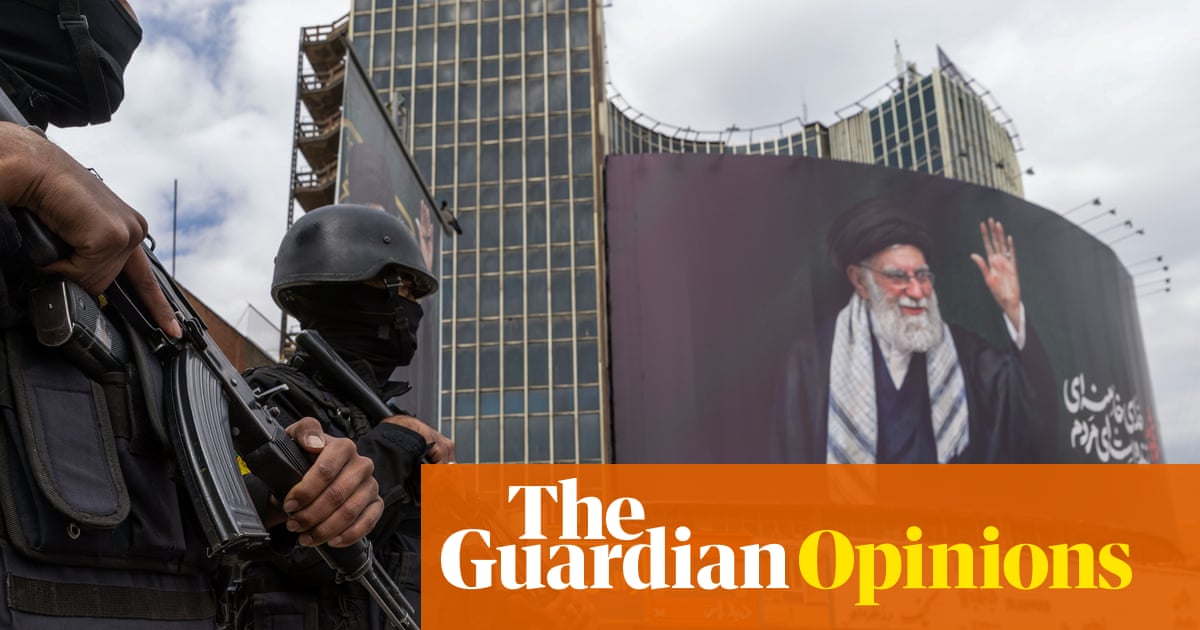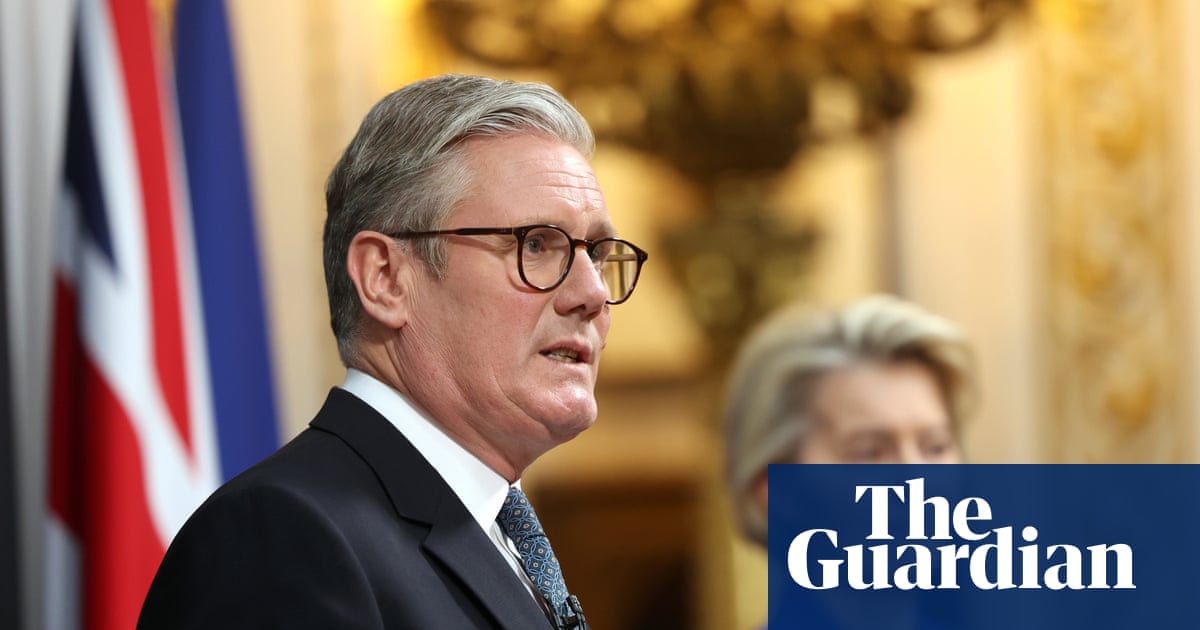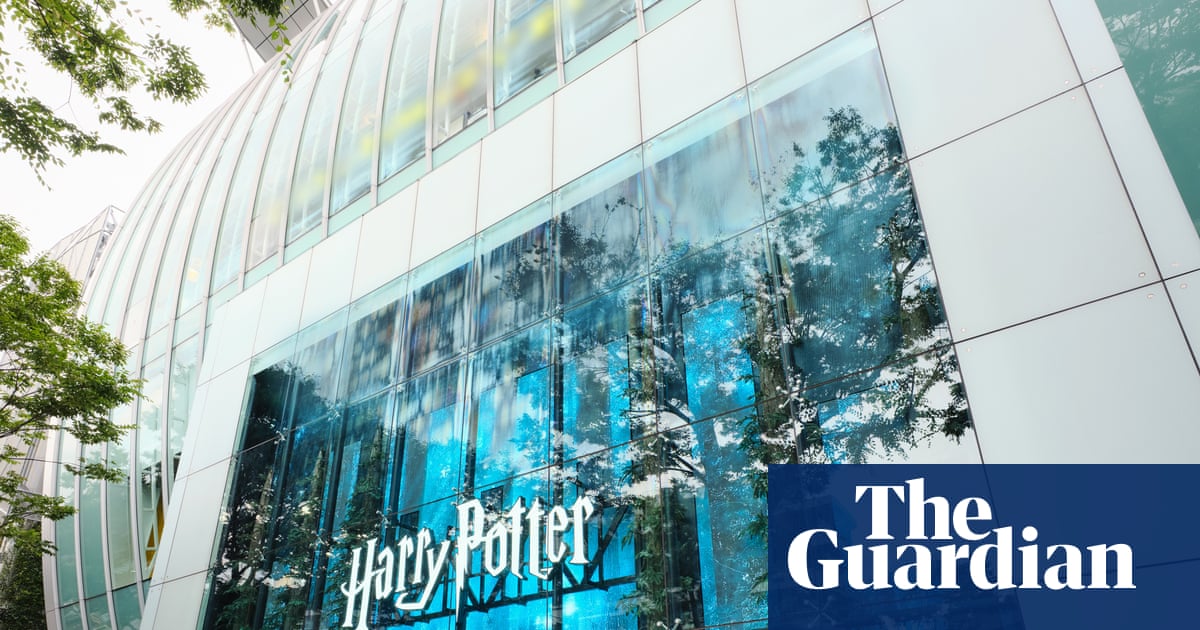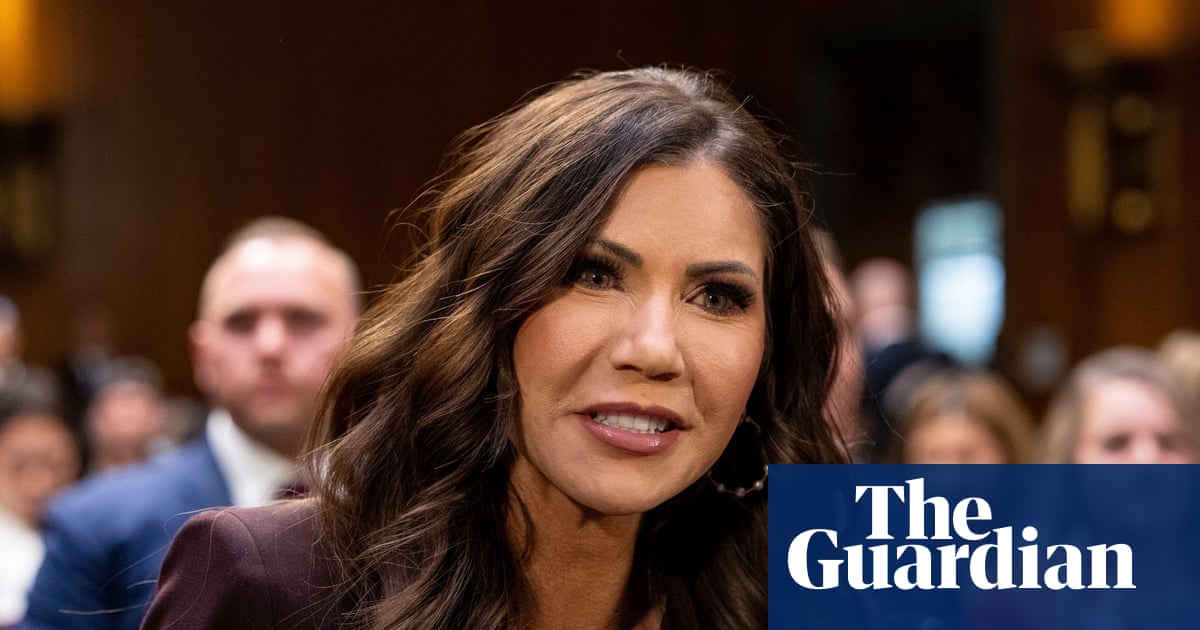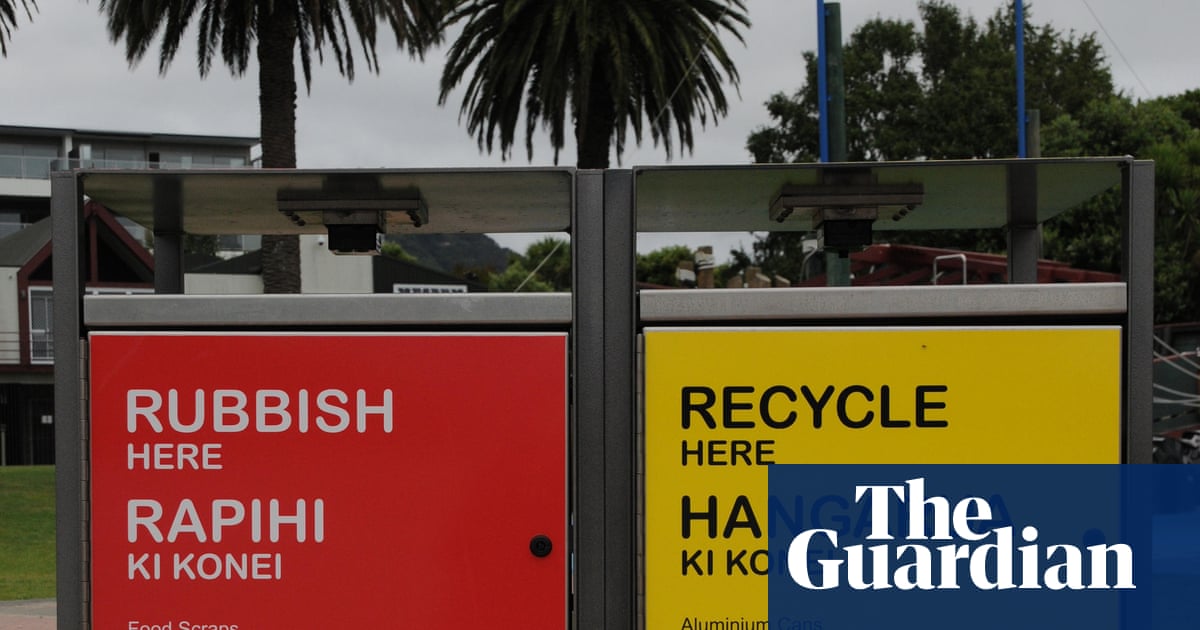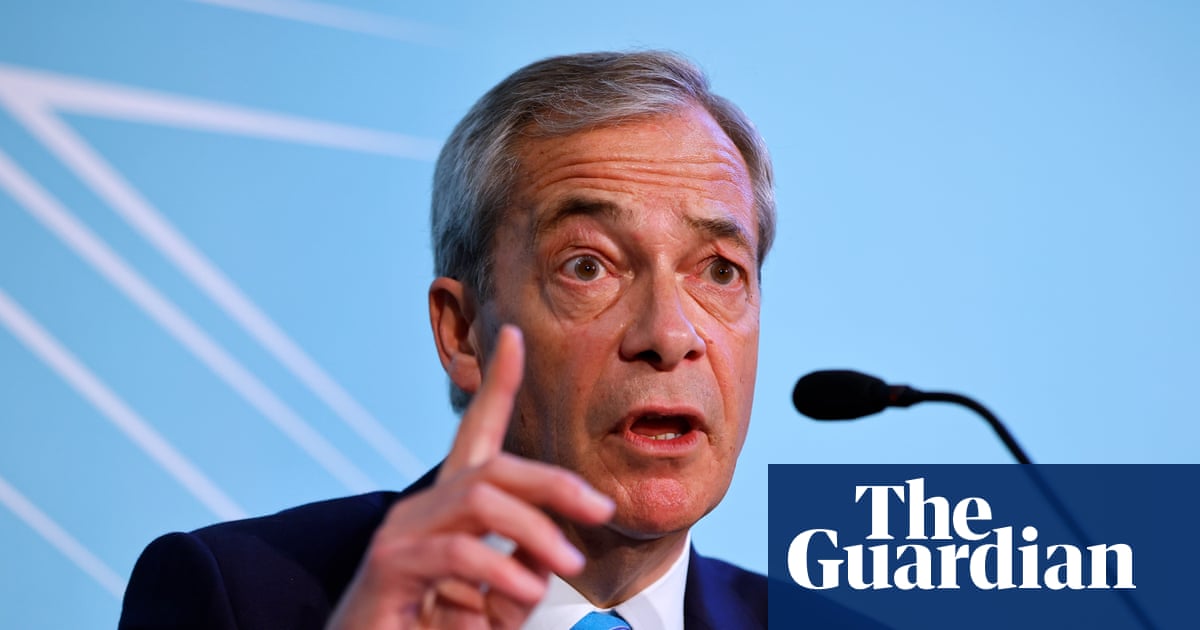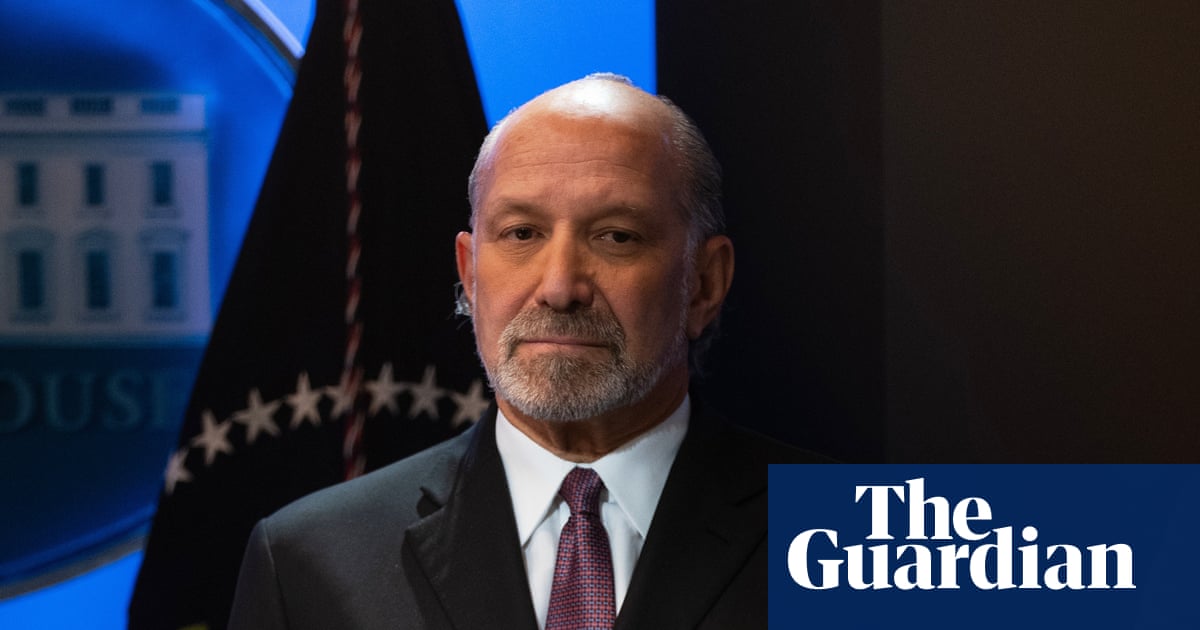Keir Starmer has announced that the UK’s first small modular nuclear reactors will be built in north Wales – but immediately faced a backlash from Donald Trump’s administration after it pushed for a US manufacturer to be chosen.
Wylfa on the island of Anglesey, or Ynys Môn, will be home to three small modular reactors (SMRs) to be built by British manufacturer Rolls-Royce SMR. The government said it will invest £2.5bn.
SMRs are a new – and untested – technology aiming to produce nuclear power stations in factories to drive down costs and speed up installation. Rolls-Royce plans to build reactors, each capable of generating 470 megawatts of power, mainly in Derby.
The government also said that its Great British Energy – Nuclear (GBE-N) will report on potential sites for further larger reactors. They would follow the 3.2GW reactors under construction by French state-owned EDF at Hinkley Point C in Somerset and Sizewell C in Suffolk.
The Labour government under Starmer has embraced nuclear energy in the hope that it can generate electricity without carbon dioxide emissions, while also providing the opportunity for a large new export industry in SMRs.
However, it faced the prospect of a row with the US, piqued that its ally had overlooked the US’s Westinghouse Electric Company when choosing the manufacturer for the Wylfa reactors.
Ahead of the publication of the UK announcement, US ambassador Warren Stephens published a statement saying Britain should choose “a different path” in Wales.
“We are extremely disappointed by this decision, not least because there are cheaper, faster and already-approved options to provide clean, safe energy at this same location,” he said.
The Trump administration last month signed an $80bn (£61bn) deal with Westinghouse, which had been struggling financially, to build several of the same larger reactors proposed at Wylfa. Under the terms of that deal, the Trump administration could end up taking a stake in the company.
A source close to the UK government said: “This is the right choice for Britain. This is our flagship SMR programme, producing homegrown clean power with a British company and we have chosen the best site for it.”
While the ambassador’s intervention is unlikely to change the future of Wylfa, it may put pressure on the UK to choose Westinghouse if it does go ahead with future large reactors.
It is understood that Torness, to the east of Edinburgh, and Hunterston, to the west of Glasgow, would be considered for future large reactors. A source close to the energy secretary, Ed Miliband, said the government wants to generate nuclear power in Scotland, despite the opposition of the ruling Scottish National party.
Wylfa generated nuclear power from 1971 until 2015, when its last reactor was shut down. Japan’s Hitachi tried to build a new plant there, but these efforts collapsed in 2019 after it failed to agree funding with the government. GBE-N bought the site from Hitachi.
Starmer said: “Britain was once a world leader in nuclear power, but years of neglect and inertia has meant places like Anglesey have been let down and left behind.
“This government isn’t just reversing decline, it’s delivering thousands of future-proofed jobs, driving billions in investment and providing cheaper energy bills in the long term.”
However, Sharon Graham, general secretary of Unite, said that building three smaller reactors rather than one larger one at Wylfa would be a mistake because it would not maximise the number of jobs for British workers. The union represents some workers in the nuclear industry.
“Failure to support a gigawatt nuclear power station at Wylfa would be a huge missed opportunity in securing the UK’s energy security,” she said.
Nevertheless, the confirmation of a UK site will be another welcome step for Rolls-Royce, the FTSE 100 maker of jet engines that was chosen as the government’s preferred developer in June.
It owns the majority of Rolls-Royce SMR, alongside Qatar’s sovereign wealth fund, France’s BNF Resources, US energy company Constellation, and the Czech utility CEZ, which could order as many as six of the reactors.
Rolls-Royce SMR has more than 1,000 employees, who are racing to produce technology that will also be installed at Temelín in the Czech Republic.
Tom Greatrex, chief executive of the Nuclear Industry Association, a lobby group, said the Wylfa project was “an exciting opportunity for a UK technology, our domestic supply chain and skilled workforce”.
He added: “To achieve the amount of nuclear capacity the country needs for a secure, reliable and price-predictable electricity mix, we will need reactors large and small.
“There will be other projects using different reactor technologies, and potentially further gigawatt-scale plants beyond Sizewell C. Partnership with like-minded allies, including the US, will be a part of delivering that ambition.”

 3 months ago
98
3 months ago
98

